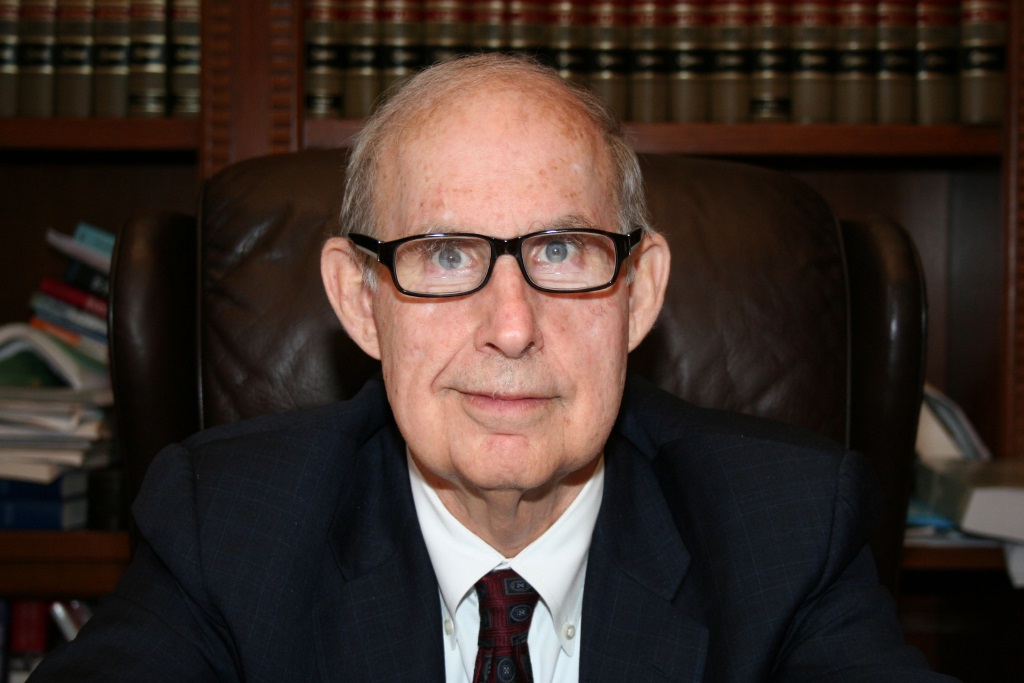John Doe Controversy Gets Even Stranger
Judge Lynn Adelman seemed mystified by attorneys for both sides in suit against John Chisholm.
On April 13th US Judge Lynn Adelman held a pre-trial conference in open court with the attorneys on Cindy Archer’s lawsuit against six prosecutors and investigators in the Milwaukee District Attorney’s office (who operated under DA John Chisholm). The suit charges Chisholm and company with violating her civil rights while conducting the first John Doe investigation focusing on staff in the office of then-County Executive Scott Walker.The discussion at this conference made me wonder anew why the suit was brought.
Two issues were discussed: a motion by the defendants to dismiss the suit based on absolute or conditional immunity for the defendants and how to assure that the evidence collected in the second John Doe probe (focusing on Gov. Walker and conservative advocacy groups) would be available in this suit.
Motion to dismiss based on absolute or conditional immunity
The defendants’ claim they enjoyed absolute or conditional immunity and that the suit should be dismissed before discovery. The suit was brought under section 1983 of the federal statutes that allows public officials to be sued personally for violations of citizens’ civil rights.
Absolute immunity results from a series of court decisions finding that judges cannot be sued in their personal capacity for official acts. Prosecutors also cannot be sued when acting as advocates, but there are limitations. For example, courts have allowed prosecutors to be sued for making false statements in a press conference or for giving bad legal advice to a police officer.
The application of absolute immunity to the Archer case revolves around the question of whether the advocate role extends to the investigation needed to decide whether to bring charges. Archer’s attorneys argue the investigation is separate and not protected by prosecutorial immunity.
Qualified immunity is based on the facts of the specific situation. Originally the test was the state of mind of the public official. Apparently finding this test unworkable, the US Supreme Court ruled that government officials are shielded from actions “insofar as their conduct does not violate clearly established statutory or constitutional rights of which a reasonable person would have known.” In the earlier suit by Wisconsin Club for Growth leader Eric O’Keefe, the 7th Circuit Court of Appeals ruled the prosecutors did enjoy qualified immunity so that a ruling on absolute immunity was not needed.
Despite the Supreme Court’s switch from “state of mind” to “violation of clearly established rights,” the plaintiff’s argument revolves almost wholly around Chisholm’s state of mind. It argues the investigation was triggered by Chisholm’s hostility towards Walker and Act 10, the law that weakened Wisconsin public employee unions.
During the defense’s presentation, Judge Adelman asked about the gap between when Tom Nardelli, Walker’s chief of staff at the county, reported missing money from a veterans fund and the start of the John Doe investigation. Surprisingly, the defense seemed unprepared for this question, since Archer’s attorneys have made much of it in arguing the investigation was politically motivated.
In his argument, Mark DeLaquil, representing Archer, referred to a “whistle blower” who came forward. The judge interrupted to ask who the whistle blower was. It was Michael Lutz, the former police officer who was an intern in the DA’s office, made various accusations about Chisholm’s comments, and committed suicide after failing to survive a primary for city council. Adelman asked how much of the case relies on Lutz.
Later Adelman suggested that the Wisconsin Supreme Court interpreted the First Amendment more strictly than does the US Supreme Court. DeLaquil’s answer seemed to acknowledge this, but argued that the Wisconsin Court’s decision was also based on the Wisconsin constitution. He also argued that the Wisconsin Court’s decision found support in several decisions from the US Supreme Court.
Finally DeLaquil made a new allegation: that the time sheets of Judge Neal Nettesheim, the John Doe judge, showed he signed the search warrant for Archer’s Madison home without seriously reviewing it.
Preservation of evidence
The discussion then turned to the question of how to preserve evidence so it would be available for the federal court trial in light of the Wisconsin Supreme Court’s order that evidence be destroyed, turned over to it, or returned to the people who were being investigated. At a previous telephone conference Adelman suggested that a copy of the evidence be deposited with the federal court.
Surprisingly, neither side seemed prepared to respond to his proposal. The defense lawyers gave the impression they had not discussed the idea among themselves. Adelman was clearly frustrated by the lack of substantive response.
Instead, the defense lawyers mainly repeated the point that the Wisconsin Supreme Court refused to commit to making the evidence available. Judge Adelman appeared already convinced that allowing the state court to dictate decisions on a case in federal court would be undesirable and was looking for a viable solution that would not entangle the two courts.
David Rivkin, who took over the argument for Archer on the evidence preservation issue, insisted that the federal court had to defer to the state court. Here is how the right-wing blog Wisconsin Watchdog describes the process that Rivkin insisted Adelman must follow:
Rivkin was forced to give Adelman a lesson in the law, that beyond the state Supreme Court’s ruling the John Doe special prosecutor must turn over the John Doe case file to the high court, there is a matter of legal process at stake.
The defendants must first ask the state court for permission to obtain “particularized” records, not a generalized universe of documents in the way Archer’s attorney argues the investigators shaped their wide-ranging and constitutionally suspect warrants.
If the state court rejects their specific requests, they may appeal to the federal court.
Despite the unusual cross-jurisdictional conflicts in play, DeLaquil said there are fundamental processes the litigants must go through to obtain secret state materials. That process has been clearly established by the 7th Circuit U.S. Court of Appeals, he said.
“That’s the way the process works,” Rivkin told Adelman.
In other words the federal court must allow the state supreme court to be the gatekeeper on evidence needed by the parties in a federal lawsuit. Rivkin, who convinced Judge Rudolph Randa to ignore considerations of “amity” with state courts in the earlier O’Keefe case (resulting in a humiliating rebuke of Randa from the Appeals Court) is now a born-again advocate of amity. But it is a strange version of amity that allows the state court to cripple the federal court’s ability to manage a trial fairly.
Rivkin also argued that “these documents were not legally obtained. The defendants unlawfully obtained those documents. I’m sure you would agree that whoever obtained (the records) illegally has no right to custody.” In arriving at its decision, the Wisconsin Supreme Court overruled a section of Wisconsin statutes. Whether or not one one agrees with that decision, it is hard to argue that documents were “illegally obtained” if they were obtained in accordance with the law existing at the time.
As a lay observer, I was left with several questions:
- Why didn’t the defense respond to the judge’s suggestion that the federal court hold copies of the evidence? It would seem to satisfy the defense’s need to access the evidence. Although the issue was not raised, it would suggest fundamental fairness if the plaintiffs were also to request access to relevant evidence. It would also be a way that evidence could be available in the event of future lawsuits by other subjects of the investigations, something not mentioned in the hearing but raised by Wisconsin Watchdog (which seems to have a direct pipeline to strategies by O’Keefe and his lawyers).
- What did Archer or O’Keefe (or whoever is making decisions for this group) expect to gain from bringing the suit? So far, the major outcome is to destroy Archer’s widely repeated claims of abuse during the search of her home. Without that, Archer’s attorneys have not pointed to any conduct by the defendants violating “clearly established statutory or constitutional rights.”
- Are Rivkin and other attorneys who were behind the political campaign to allow coordination between candidates (notably Walker) and outside groups starting to worry about the conflict between that decision and the US Supreme Court’s decisions on coordination? This is the second time I have heard the claim that the Wisconsin Supreme Court’s decision was based on something unique about Wisconsin’s constitution.
- Why did Archer’s attorneys drag the Wisconsin Supreme Court’s coordination decision (involving John Doe II) into their revised complaint? By demanding that the federal court endorse the state Supreme Court’s decision, they may be inviting an examination of whether the state court’s ruling on coordination is compatible with those of the US Supreme Court.
Data Wonk
-
Why Absentee Ballot Drop Boxes Are Now Legal
 Jul 17th, 2024 by Bruce Thompson
Jul 17th, 2024 by Bruce Thompson
-
The Imperial Legislature Is Shot Down
 Jul 10th, 2024 by Bruce Thompson
Jul 10th, 2024 by Bruce Thompson
-
Counting the Lies By Trump
 Jul 3rd, 2024 by Bruce Thompson
Jul 3rd, 2024 by Bruce Thompson






















I think O’Keefe and Archer got the tips of their skis crossed on this suit. Perhaps they were confident that Archers lies about her treatment during the search ,almost all of which were disproved by an actual taped recording of the search,would provoke outrage from the federal courts. Nothing is more dangerous in a lawsuit than beginning to believe your own lies. The GOP in Wisconsin has gone so far as to enact a law allowing political coordination with non-profit issue groups, because as Rep Voss claimed at the time, they wanted the Wisconsin law to conform to previous court decisions. Unfortunately a simple google search would have revealed that no Federal Appellate Court has ever ruled that coordination is legal between a politician and an issue group. Justice Kennedy in both Citizens United and its predecessor Buckley expressly stated that the U.S. Supreme Court in its 5 to 4 ruling was allowing unlimited donations to issue groups because politicians could not legally coordinate with tax free issue groups. The tax free nature of issue groups would be compromised completely if commingled with political campaigns, which enjoy no favorable tax treatment. O’Keefe, Archer and the Wisconsin GOP may have taken a good joke too far with this lawsuit.
Daniel Golden,
You are absolutely correct when you say that “no Federal Appellate Court has ever ruled that coordination is legal between a politician and an issue group”.
That is the reason that O’Keefe & Co. are so worried that this lawsuit might be heard by the SCOTUS. For if this case is heard by that court, what is the court going to do? Contradict their own position? I think not.
Thompson’s observation that “This is the second time I have heard the claim that the Wisconsin Supreme Court’s decision was based on something unique about Wisconsin’s constitution.” makes an excellent point. Without that “unique” position now put forth by Rivkin, they’ve got nothing. I do hope that the DAs are prepared to address that argument and lay it to rest.